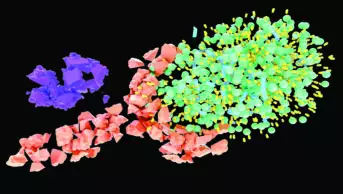
Shutterstock.com
It is unclear how effective statins are at preventing a first heart attack or stroke in people with cardiovascular disease (CVD) risk factors.
In a review carried out by the United States Preventive Services Task Force (USPSTF) to update its recommendations on statin treatment[1]
, researchers looked at data from 71,244 adults aged 40–75 years with increased CVD risk but no history of CVD events (JAMA, online, 15 November 2016).
They found that, over a median follow-up of three years, statins were associated with a 36% lower risk of heart attack and 29% lower risk of stroke compared with placebo. Risk of death and cardiovascular death were reduced by 14% and 31%, respectively.
The USPSTF says it recommends initiating low-to-moderate dose statins in such patients when they have a calculated ten-year CVD event risk of 10% or greater, a recommendation similar to that of the National Institute for Health and Care Excellence.
References
[1] United States Preventive Services Task Force. Statin use for the primary prevention of cardiovascular disease in adults: US Preventive Services Task Force recommendation statement. JAMA 2016;316:1997-2007. doi: 10.1001/jama.2016.15450


